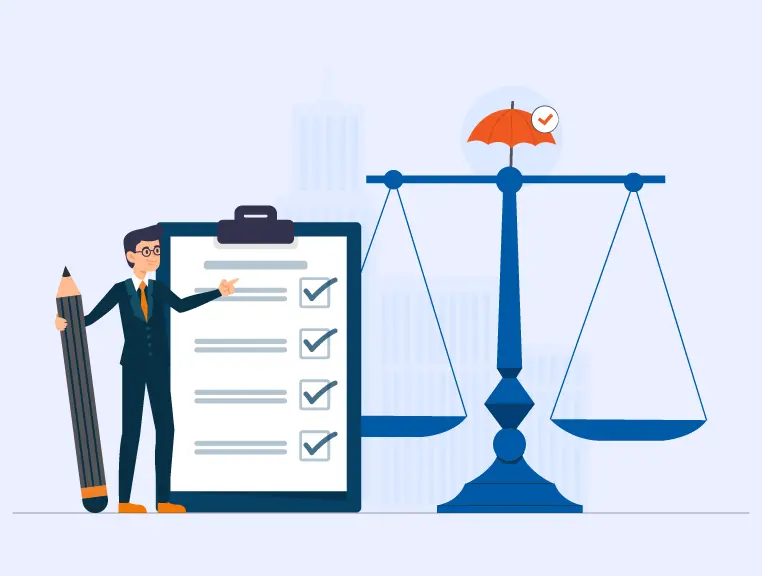A commercial general liability insurance policy plays a crucial role by covering a wide range of liabilities to which a company may be exposed. The policy offers protection against claims which are related to bodily injury or property damage for which your company may be liable to pay. In short, the policy covers a wide range of liabilities that most organizations have to face during the course of their business. A CGL insurance policy includes an option to include an extended reporting period Endorsement, which covers those claims as well which are reported after the policy ceases to exist.
Read More: What is a Commercial General Liability Insurance?
If you go with the extended reporting period endorsement option, your insurance policy will cover those claims as well which you have reported to the insurer during a particular time period after your insurance policy has expired. In most cases, an extended reporting period is also known as the “tail” or “tail coverage.”
When might you need to add an extended reporting period endorsement in your policy?
In general, a commercial general liability insurance policy covers those claims which arise against you during the policy tenure. It doesn’t cover those claims which are filed after the policy has expired. Thus, there would be coverage gaps if your claims-made coverage is expired or not renewed. Such kind of issues can also arise if your claims-made policy coverage is replaced with an occurrence policy.
In the case of claims-made policy coverage, the triggering event is a claim which is filed against the policyholder during the policy tenure. Here, the injury could happen before or during the policy term, however, the claim should be filed when the policy is active. On the other hand, in case of an occurrence policy, though, the policyholder can file a claim after the policy has expired, the event must happen when the policy was active.
Different Types of extended reporting period endorsement
It is feasible to divide extended reporting period endorsement into two categories—one-way or two-way. A one-way tail is given if the insurer cancels or does not renew the policy or rewrite your cover under an occurrence policy. Similarly, a two-way tail is given if either you or your insurer cancel or does not renew your policy.
Further, some commercial general liability insurance also offers more than one type of extended reporting period. Many insurers offer automatic short-term tail coverage if the insurer cancels or does not renew your policy.
Then there are some insurance policies that come with an option to buy broader coverage via an endorsement. This added coverage can also be called Supplemental (or Optional) ERP. Usually, an optional ERP is given only if the policyholder asks for the same in writing within a particular time frame (like 60 days) after the policy has expired. Remember, you would have to pay an additional premium to get this coverage.
It is essential to note that in most cases, the purchase of the extended reporting period endorsement doesn’t reinstate the limit because the limits which were available in the last policy tenure would be available during the policy extended period as well.
Case on Extended Reporting Period Endorsement
K.S Construction is in business for the last ten years. To safeguard itself from lawsuits that may arise in case of third-party bodily injuries and damages, the company bought a one-year claims-made commercial general liability insurance policy with an inception date of October 1, 2015. However, the insurer canceled the policy on March 31, 2016, and replaced it with an occurrence policy coverage.
Read More: Who is an Insured under Commercial General Liability Insurance?
On May 1, 2016, the company received a notice of the claim for the bodily injuries which took place on November 5, 2015. As the claim was not made during the policy tenure, and the claims-made policy was expired, it was not covered by the insurer. Similarly, the new occurrence policy also not offered coverage because here the injury took place much before when the policy was in effect.
Here, the situation would have been different if K.S Construction had an insurance policy that covered extended reporting period endorsement as well. In case of a claim, the insurer would have covered the previous claims as well which happened during the policy tenure but were filed when the policy expired.
About The Author
Rajesh Mehta
MBA Finance
Rajesh has become a distinguished expert in liability insurance with over 8 years of extensive experience in the insurance industry. As a dedicated writer for SecureNow, he crafts insightful and informative blogs and articles that help businesses and individuals understand the nuances of liability insurance, from policy details to industry trends. Throughout his career, Rajesh has developed a profound knowledge of various types of liability coverage, including professional, general, and product liability insurance. Their expertise enables them to break down complex topics into accessible content, making it easier for readers to make informed decisions about their insurance needs.




